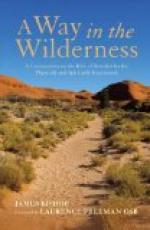There are other questions, which one can only ask without answering. Is this silent gathering merely a tribute to the old law of the herd, or does Megaleep, with his last strength, still think to cheat his old enemy, and go away where the wolf that followed him all his life shall not find him? How was his resting place first selected, and what leaders searched out the ground? What sound or sign, what murmur of wind in the pines, or lap of ripples on the shore, or song of the veery at twilight made them pause and say, Here is the place? How does he know, he whose thoughts are all of life, and who never looked on death, where the great silent herd is that no caribou ever sees but once? And what strange instinct guides Megaleep to the spot where all his wanderings end at last?
II. KILLOOLEET, LITTLE SWEET-VOICE.
[Illustration: Killooleet]
The day was cold, the woods were wet, and the weather was beastly altogether when Killooleet first came and sang on my ridgepole. The fishing was poor down in the big lake, and there were signs of civilization here and there, in the shape of settlers’ cabins, which we did not like; so we had pushed up river, Simmo and I, thirty miles in the rain, to a favorite camping ground on a smaller lake, where we had the wilderness all to ourselves.
The rain was still falling, and the lake white-capped, and the forest all misty and wind-blown when we ran our canoes ashore by the old cedar that marked our landing place. First we built a big fire to dry some boughs to sleep upon; then we built our houses, Simmo a bark commoosie, and I a little tent; and I was inside, getting dry clothes out of a rubber bag, when I heard a white-throated sparrow calling cheerily his Indian name, O hear, sweet Killooleet-lillooleet-lillooleet! And the sound was so sunny, so good to hear in the steady drip of rain on the roof, that I went out to see the little fellow who had bid us welcome to the wilderness.
Simmo had heard too. He was on his hands and knees, just his dark face peering by the corner stake of his commoosie, so as to see better the little singer on my tent.—“Have better weather and better luck now. Killooleet sing on ridgepole,” he said confidently. Then we spread some cracker crumbs for the guest and turned in to sleep till better times.
That was the beginning of a long acquaintance. It was also the first of many social calls from a whole colony of white-throats (Tom-Peabody birds) that lived on the mountain-side just behind my tent, and that came one by one to sing to us, and to get acquainted, and to share our crumbs. Sometimes, too, in rainy weather, when the woods seemed wetter than the lake, and Simmo would be sleeping philosophically, and I reading, or tying trout flies in the tent, I would hear a gentle stir and a rustle or two just outside, under the tent fly. Then, if I crept out quietly, I would find Killooleet exploring my goods to find where the crackers grew, or just resting contentedly under the fly where it was dry and comfortable.




